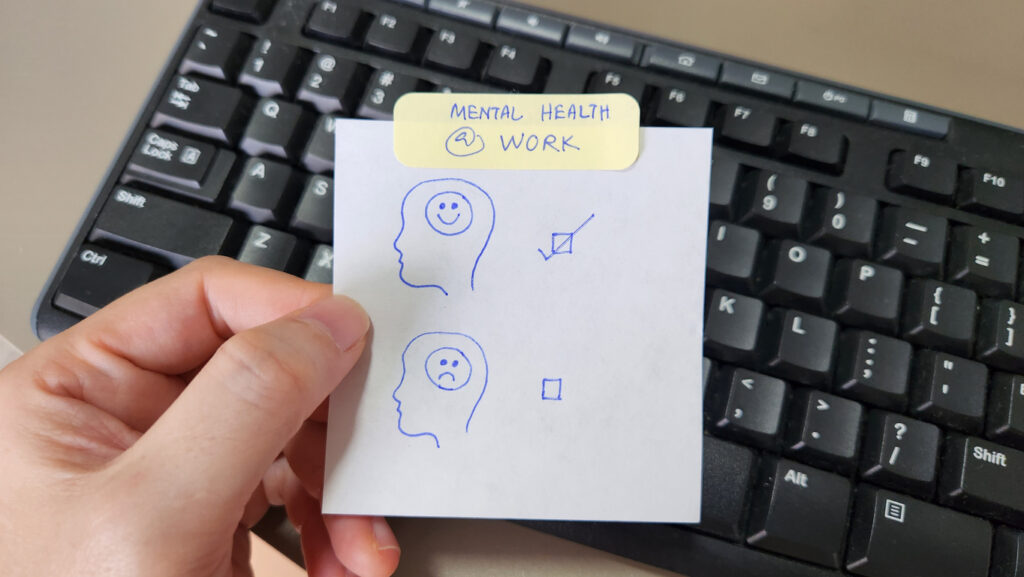By Jim Molis

Workers want to be where their wellness matters. That often means a workplace which supports employee mental health.
Almost 70% of employees want their employer to provide mental health support for feelings of anxiety, loneliness and burnout caused by workplace stress. Remote employees are particularly lonely and struggle with the blurred lines between work and home.
Knowing their employers can help, employees expect more support — because they deem their mental health essential to their overall well-being. Indeed, 63% of employees consider preventive care to be as important to their mental health as their physical health, and 75% say their mental and physical health are closely related.
Given that eight in 10 employees look for workplaces which support mental health, prioritizing mental health is one way responsive employers can position themselves to recruit and retain top employees.
Why Mental Health Matters to Employees
Employee stress reached a record high for the second consecutive year in 2022, with 44% of workers saying they experienced a lot of stress the previous day, the same percentage as in 2021, according to Gallup. Although employee stress has been rising for almost a decade, it has gradually intensified since the pandemic started in 2020.
Fortunately, there is a corresponding increase in employers connecting workplace conditions to employee well-being. As a result, psychologists and other professionals are helping employers better support their workers, both to improve employee well-being and attract top talent.
Employees have noticed the efforts and appreciate the support. Seventy-one percent of employees believe their employer is more concerned about the mental health of employees now than in the past, according to the American Psychological Association’s 2022 Work and Well-being Survey.
That concern is most evident in work arrangements, as the survey showed that employees were most likely to choose flexible work hours (41% of workers), or a workplace culture that respects time off (34%) — when asked to pick from a list of a dozen possible supports. Also highly valued: access to providers of mental health care and insurance coverage for treatments.
The list included less-preferred options too, such as the ability to work remotely (33%) or a four-day work week (31%).
According to the APA’s survey, only 30% of employees reported that their employer offers health insurance with coverage for mental health and substance use disorders, but of those employees covered, 93% said that such insurance is an effective mental health support.
Furthermore, although just 11% of workers reported that their employer has people on-site who have received mental health training, 94% of employees considered this support effective, including 45% who said the support is very effective.
“With the array of challenges and stresses that employees face at work, employers should look at opportunities to improve well-being and health — including the suggestions their own workers offer,” APA researchers noted.
Addressing workplace challenges helps employers and their employees. Whereas poor mental health in the workplace can cause issues like strained relationships, poor decision-making, low morale, high turnover and even brand damage and revenue loss, supporting mental health can provide benefits like more productivity with healthier, happier employees. And focusing on employee mental health can be a good place to start.
How to Support Mental Health in the Workplace
Indications that an employee may have a mental health issue include mood shifts, problems concentrating or deteriorating performance. Such problems can result from common work-related challenges that can negatively impact employee mental health, like long hours, insufficient training or equipment shortages.
Employers can help employees by connecting them to mental health assessment providers and offering access to treatment, for example. Mentavi Health, for instance, offers 24/7 access to asynchronous assessments for mental health conditions like ADHD, anxiety, depression and will soon add PTSD and learning disabilities, as well as optional medical treatment services.
Additionally, the World Health Organization recommends that employers protect employee’s mental health by means such as:
- Training managers to recognize and respond to employees experiencing emotional distress
- Increasing employee knowledge of mental health and reducing stigma around mental health conditions at work
- Helping employees build skills to manage stress and reduce mental health symptoms.
Unfortunately, workplaces are not immune to the worries of the world, like political unrest, economic uncertainty or global conflicts. Nor are workers free from job-induced stresses like staffing shortages or the sense of isolation that can come from working remotely all day, every day.
As employees wrestle with issues like anxiety and depression, they gravitate to employers who help. And having realized the benefits of working for companies that care more about mental health than others, employees have come to expect even more from employers.
Mental health is a top priority for employees, and the employers that support them can get the top talent by helping.
Learn more about how Mentavi Health helps you support employees’ mental health.

